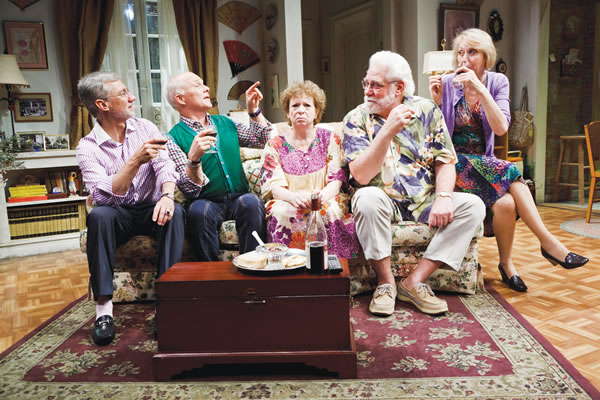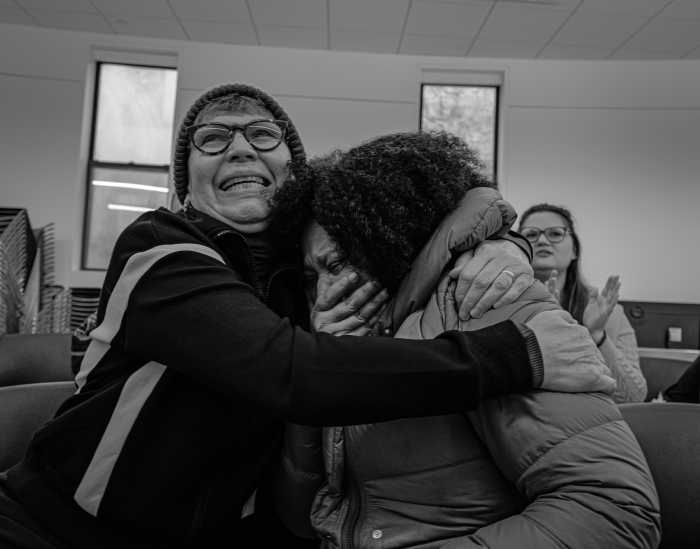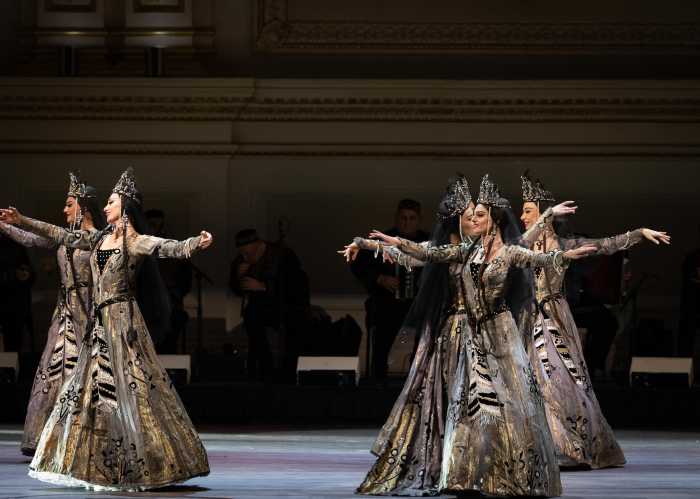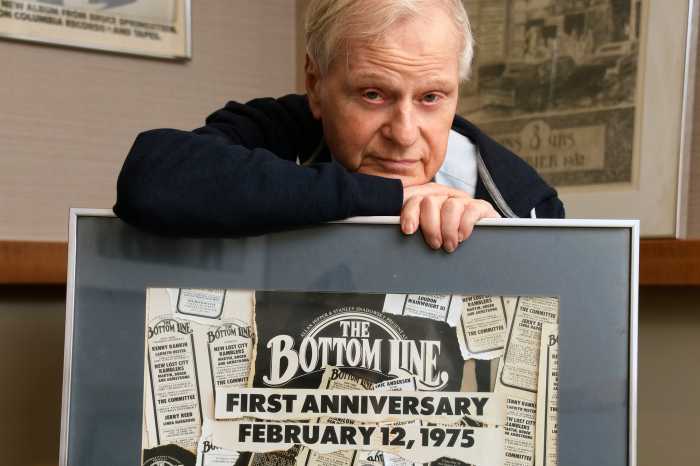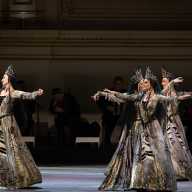BY SCOTT STIFFLER
Busch’s bitter ‘Olive’ leaves sweet taste
Pay no attention to that man inside the mirror. Although his ghostly appearance to the titular character is the talk of “Olive and the Bitter Herbs,” he’s just a hook for damaged souls to hang their dreams on — and by the final few scenes, his mysterious persona is about as threatening as the great and powerful Oz after Toto pulls the curtain back. But that doesn’t stop the five characters in Charles Busch’s breezy, poignant, Jew and gay joke-filled play from the certitude that catching a glimpse of “Howard” in the mirror will fill the void.
Too bad. They’re such a flawed and likable bunch, you practically want to stand up in your seat and warn them that people who try to hitch a ride on another person’s wagon usually get pinned under the wheels. But if nobody were willing to take that kind of chance, there would be no play — and that’d be a shame.
The real shame is that the mirror, which contains that seductive ghost, hangs in the living room of a Kips Bay co-op’s nastiest resident. Olive (Marcia Jean Kurtz) is a misanthropic minor actress whose artistic legacy stems from the catch phrase she uttered in a 1980s sausage commercial. She’s also a stereotype-alert Jew with a gift for nursing grudges and a serious persecution complex (“I’m like a Tutsi and the co-op board is a Hutu!”).
When Olive confides to dutiful caretaker and kinda friend Wendy (Julie Halston) that the spirit of a Key West real estate agent is haunting her mirror, both begin to feel a special connection…but why? It’s not long before word spreads, and Olive’s feuding neighbors make nice so they can drop by for the occasional glass of wine and spiritual encounter. As the queer couple cohabitating on the other side of the paper-thin wall, Robert (David Garrison) and Trey (Dan Butler) give Olive a run for her money when it comes to picking fights. Enter the peacemaker — Richard Masur as Sylvan (father to the co-op board member with whom Olive is feuding). Robert and Trey feign interest in having a Seder at Olive’s place in order to score more mirror time — while serial widower Sylvan patiently coaxes Olive out of her shell.
That simple conceit (everyone wants something the grouch has) lets Busch plow through the rest of the play firing off one-liners and milking the deep well of broad comedy without quite letting his characters lapse into the realm of camp (which would have diluted the impact of their occasional stabs at introspection). By the end of the proceedings, all five discover their hunch is right. They do indeed have a personal connection to Howard the ghost (and each other).
We recently spoke with playwright Charles Busch — he of cult classics like “Vampire Lesbians of Sodom,” Broadway hits like “The Tale of the Allergist’s Wife” and Busch-in-drag gems like the recent “The Divine Sister.” Asked to place this latest work within that context, the amiable and modest Busch declares, “Well, I think it’s genius! It’s up there with ‘Long Day’s Journey’ and ‘Streetcar.’ ” He’s got a point. Olive’s a classic character in her own right (dysfunctional and proud like many of his heroines). And although she often spouts sitcom-friendly zingers (“Regrets provide fine entertainment when there’s nothing on cable!”), Busch resists the temptation to take her from grump to softie by the nonetheless satisfying and organic conclusion. “It kind of bugs me when I see plays where you see a complex person, and it all takes place over the course of a few days and they completely change,” opines the playwright. “I don’t think we ever learn anything. I have to say, I feel like I’ve gained insight into some of my patterns. But whether I get out of those patterns remains to be seen. With Olive, she’s a woman who’s closed herself off from life. So the most I can offer is, she’s going to make an attempt to reach out. That’s the most I can expect from her. She’s going to try.”
Asked for his own personal take on whether the miserable old gal can repair what’s been done to the numerous olive branches she’s received, Busch teases, “Whether she will succeed in changing her life remains for the sequel.” Let’s hope. As for his own next act, the self-professed “old curmudgeon” says that over the past decade, “I discovered the word ‘no.’ And I think I overdid it. No, no, no to just about everything that one could say no to. This year, I’ve decided to learn the word ‘yes.’ I’m working on a slew of odd projects: a children’s musical, plays, all sorts of things. I think it’s good to just throw the cards in the air.”
Neighbors negotiate a peaceful settlement at Olive’s uneasy Seder.



